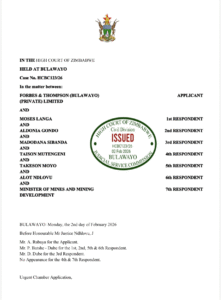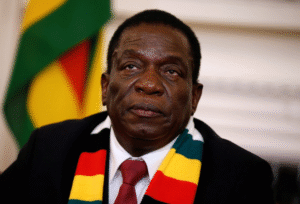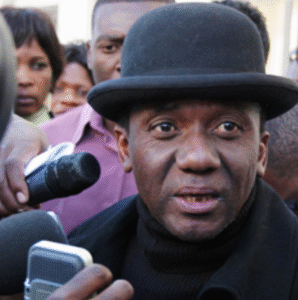RUSHWAYA’S ACQUITTAL: A TRAVESTY OF JUSTICE FOR STRUGGLING ZIMBABWEANS
In a recent turn of events that has left many Zimbabweans feeling disheartened and disillusioned, Henrietta Rushwaya, a prominent figure in the nation’s mining sector, has been acquitted of all charges relating to her alleged involvement in gold smuggling. The verdict, which many view as a blatant display of corruption and a mockery of the struggles faced by ordinary Zimbabweans, has sent shockwaves through the nation and raised serious concerns about the country’s commitment to transparency, accountability, and justice.

Henrietta Rushwaya, the former Zimbabwe Miners Federation (ZMF) president, was arrested in October 2020 at the Robert Gabriel Mugabe International Airport while attempting to leave the country with six kilograms of gold, valued at over $300,000. The high-profile case garnered significant attention from both national and international media outlets, as it seemingly exposed the pervasive corruption within Zimbabwe’s elite circles. Many citizens hoped that the trial would set a new precedent for accountability and bring an end to the impunity enjoyed by high-ranking individuals in the nation’s political and economic spheres.
However, the subsequent acquittal of Rushwaya has dashed these hopes and left a bitter taste in the mouths of millions of Zimbabweans. The judicial system’s failure to hold her accountable for her actions has highlighted the glaring inequalities and systemic corruption plaguing the nation. In the eyes of many, this outcome serves as a stark reminder that justice remains elusive for the average Zimbabwean, while the privileged few continue to operate above the law.
The Rushwaya case stands in stark contrast to the treatment of political activist and opposition leader Jacob Ngarivhume, who was recently convicted for inciting violence during the #July31 protest. Ngarivhume’s harsh sentencing has been widely criticised as an infringement on freedom of speech and an attempt to quash political dissent. The disparity in the outcomes of these two cases further underscores the uneven application of the law and the selective nature of justice in Zimbabwe.
The implications of Rushwaya’s acquittal extend far beyond the immediate disappointment and frustration felt by many Zimbabweans. It casts a dark shadow over the government’s efforts to combat corruption and promote transparency, as well as its commitment to upholding the rule of law. The case also raises questions about the independence and impartiality of the judiciary, which many fear has become increasingly susceptible to political influence and manipulation.
In a nation where ordinary citizens are grappling with an array of challenges, including skyrocketing inflation, food insecurity, and a crumbling healthcare system, the government’s inability or unwillingness to hold powerful individuals accountable for their actions sends a disheartening message. It perpetuates the belief that the interests of the elite few are prioritised over the wellbeing of the majority, exacerbating existing social and economic divides and fuelling resentment and disillusionment.
To restore public faith in the country’s institutions and demonstrate a genuine commitment to justice and accountability, the government must take immediate steps to address the glaring disparities and injustices that have been brought to light by the Rushwaya case. This includes ensuring the independence and integrity of the judiciary, as well as implementing effective mechanisms to combat corruption at all levels of society.
In the absence of genuine reform and meaningful action, the acquittal of Henrietta Rushwaya will continue to be viewed as a mockery of the struggles faced by oppressed Zimbabweans. It will stand as a symbol of a justice system that perpetuates inequality and protects the interests of a privileged few at the expense of the many.
Her acquittal of Henrietta Rushwaya in the gold smuggling case has left a deep scar on the collective conscience of Zimbabweans. It is a glaring reminder of the injustice and corruption that perme





